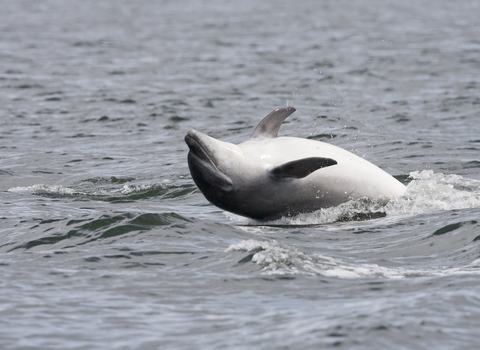The UK’s seas support diverse wildlife and coastal communities and lock away huge amounts of CO2; yet they are in a heavily depleted state, with fishing among the leading causes for declines of wildlife and damage to the marine environment. The Wildlife Trusts have long called for improved management of our fisheries, that takes account of the whole marine environment and protects the marine ecosystems which fishers depend upon.
It is therefore highly encouraging that the Government’s new Fisheries Bill goes some way to deliver this. It is underpinned by a commitment to fish at sustainable levels and manage our fisheries in a more sensitive way, with measures to encourage fisheries management that takes account of ecosystems and the wider marine environment, as well as the impacts of climate change.
Globally, oceans absorb over a third of manmade CO2 emissions. Healthy marine ecosystems such as seagrass, thriving fish populations, and plankton pull down and lock away CO2, while undisturbed sediments can store carbon safely for millennia
With changes to strengthen key areas of the Bill, it could become a big step forward for the sustainable management and recovery of our seas, and for tackling climate change.
Fisheries management plans
The Fisheries Bill includes a commitment to introduce fisheries management plans for fish populations. These would take account of the whole marine environment, which is significant as, after all, fish populations do not exist in isolation, and both depend upon and impact the wider health of our seas.
These management plans could play an important role in the improved management of our seas. However, we are concerned about some weaknesses in the language of the Bill which would allow authorities to get around fisheries management plans due to economic, social, or other factors. Short term considerations could blunt or even override ambitions for long-term sustainable management as a result.
There are also no clear timeframes for the introduction of these plans. We hope the Bill will be strengthened to ensure management plans can only be disregarded in the most pressing circumstances and that they are introduced in a timely manner. We also hope to see stronger legally binding commitments to fish at sustainable levels in line with scientific advice.
Climate change
Globally, oceans absorb over a third of manmade CO2 emissions. Healthy marine ecosystems such as seagrass, thriving fish populations, and plankton pull down and lock away CO2, while undisturbed sediments can store carbon safely for millennia – but in a degraded state, seas are far less able to play this important role, and the life they support is much more vulnerable to climate change.
Therefore, it is very positive that the Bill includes a climate change objective. Not only should restoring healthy ecosystems in our seas be a priority in tackling climate change, but the way we manage our seas should take account of its consequences for the marine environment. This objective could allow fisheries to adapt to and help tackle climate change.
Fishing quotas and shared stocks
The UK will also be negotiating with the EU and other countries over how shared fish stocks are managed. The Fisheries Bill contains no firm commitment around how shared stocks will be managed, and the Bill could introduce a commitment to manage shared stocks sustainably. This might include an objective to agree catch limits in line with scientific advice.


